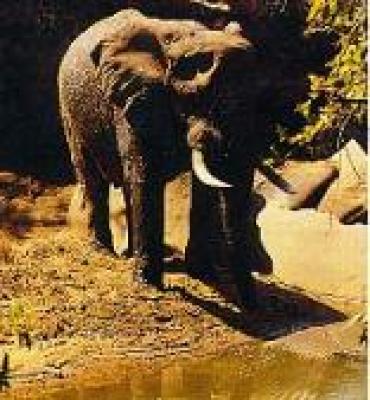This route offers the tourist with the opportunity to experience the beautiful scenery and wildlife of Limpopo.. When approached from the south, i.e. Pretoria and Johannesburg, the route runs via Polokwane through Tzaneen to Phalaborwa.
The route passes Polokwane into the escarpment at Haenertsberg and Magoebaskloof towns descending into the rich agricultural town of Tzaneen. Along the route, tourists can enjoy the breathtaking scenery of the Magoebaskloof area and visit attractions such as the museum of Chief Makgoba who fought with the Boers, the Debengeni Falls and the Sapekoe Tea plantations.
From the town of Tzaneen, the tour could wind northwards to the quaint little town of Modjadjikloof, the domain of the legendary Rain making Queen Modjadji of the Lobedu people. Visitors to her homestead can go on a walk in the unique cycad reserve and be informed about the cultural importance of the area to the Lobedu.
Tourists also get the chance to get acquainted with aspects of the 200-year-old Rain Queen dynasty. In addition, visitors have the option of taking residence in the Ivory Route camp at the reserve in traditional Venda huts or to travel to Modjadjikloof or Tzaneen to stay in one of the lodges and guesthouses.
Other attractions in the area includes the Baobab bar / pub in Duiwelskloof, a visit to Pekoe View estate to sample the local tea and subtropical fruits that are available in abundance throughout the year.
From Tzaneen, the route eastwards towards Phalaborwa where the visitor can visit one of the premier provincial nature reserve, Letaba Ranch known for its large herds of elephants and buffaloes.
Whilst in Phalaborwa, the visitor can enter the Kruger National Park to visit the Masorini Iron Age museum and Elephant museum at Letaba Camp.
The other eastward route is towards the town of Hoedspruit to experience the beautiful scenery of the Lowveld and visit attractions such as the Blyde River canyon; Cheetah Breeding centre and Animal Rehabilitation centre at Moholoholo, and to go on an elephant back safari.
The Valley of the Olifants is one of the last unspoilt corners of Africa - unhurried, contented and timeless.
Here the sights and sounds, the smells and tastes, the very touch of history and heritage fill up the senses of those who seek the spirit of an age gone by.


